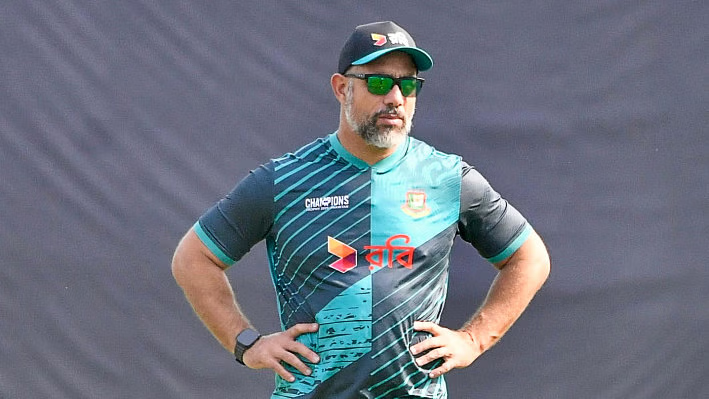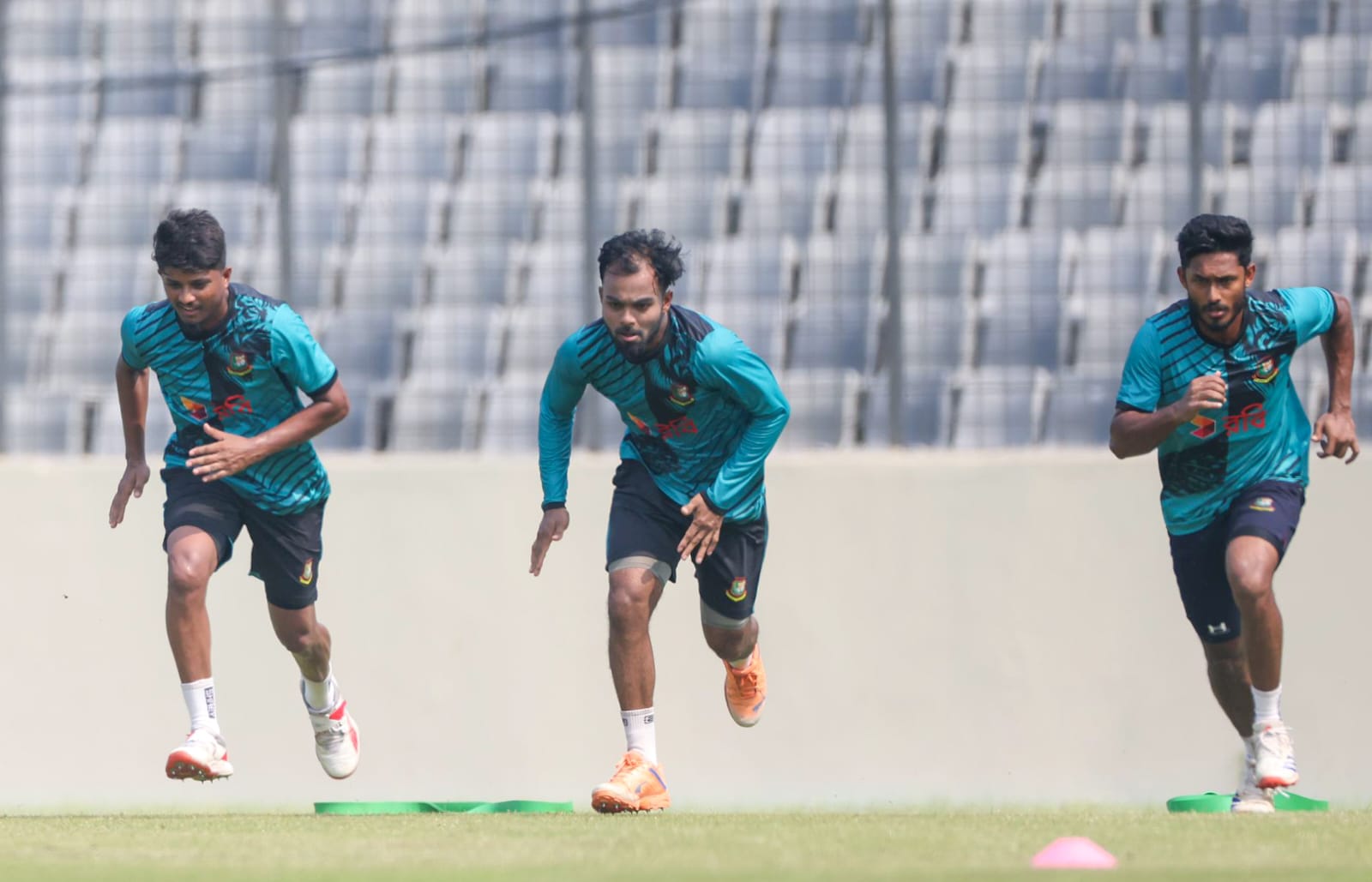Pacers in catch-22 on saliva ban

Photo - Cricfrenzy

|| CF Correspondent ||
Bangladesh pacers are in dilemma over the ban of saliva by the International Cricket Council as they feel it will have a huge impact on their games in the upcoming days.
The fielding team always uses saliva or sweat to maintain the shine of the ball which is an important part of the game but as the coronavirus spreads mostly through human droplets ICC has put an embargo overusing saliva or sweat as a shiner.
ICC on Tuesday ratified interim changes to playing regulations that include COVID-19 substitutes for Test cricket and the ban on use on saliva to shine the ball among others.
With a view to reducing the risk of the spread of the Coronavirus protect and ensure the safety of players and match officials once cricket resumes, the Anil Kumble-led Cricket Committee had made several recommendations which have now been ratified by the ICC Chief Executives' Committee (CEC).
Despite opposition to the cricket committee's saliva ban, the ICC has remained steadfast in forbidding the use of saliva to shine the ball.

The ICC though has offered to be lenient during the initial adjusting phase, to account for involuntary habits.
However, warnings will come into the picture for serial offenders. A team will be warned up to two times by the umpires before they award a five-run penalty to the batting side. The application of saliva, unintentional or otherwise, would see the umpires disinfecting the ball before another delivery is sent down.
While spinners are saying that they will have a problem with the ban on saliva, it is obvious that pace bowlers will suffer the most considering saliva is considered as one of the major tools helping them to demonstrate their skill in the middle.
Abu Jayed, who has been Bangladesh’s key pacer in Test matches for the past few series, has impressed with his ability to swing the ball both ways early on but with the new rule imposed by the ICC, he is not too optimistic about his future.
"I will turn into a very normal bowler. I'm a swing dependent bowler. It can be seen that I played two-three matches and couldn't able to do anything in bowling. Even I can get dropped from the team. If the ball loses its shine, soon it will lack the swinging ability and in flat tracks, the batsmen will remain unchallenged from the bowlers,’’ said Jayed.
"Everyone has their own strength. Some are better on the new bowl, some are on the old. Now the strength may come down a bit. Playing a match will give a clear idea about what is going to happen,’’ he said.
‘So when the shiny part gets scratched or something, we use saliva to clean up the dirt and keep the surface shinning. If the art of swing is lost, then bowlers can do very little. Maybe now reverse swing will be effective from 20-25 overs. But everything is at the hypothetical level now. Let’s see how it goes in the ground,’’ he said adding that he is looking for some alternative to saliva.
‘’Some sort of alternative should be introduced to use as shiner because it’s an important part of the game. From the very second over of the bowling innings, I decide with my bowling partner about maintaining the shine. We discuss which side to keep shiny and which side to keep rough,’ he said.
Ebadat Hossain echoed the same sentiment adding that it will be a big challenge for them.
"Something similar to vaseline can be used. And if not then the wicket has to be kept green and bouncy. Then at least the bowlers will get confidence,’’ said Ebadat adding that now all the emphasis will be on rubbing the ball well from the start of the innings.
"Using saliva gets it easier. However, if you try from the beginning, it is possible to keep the ball shining without using saliva. It depends more on how well the ball is rubbed,’’ he concluded.a




